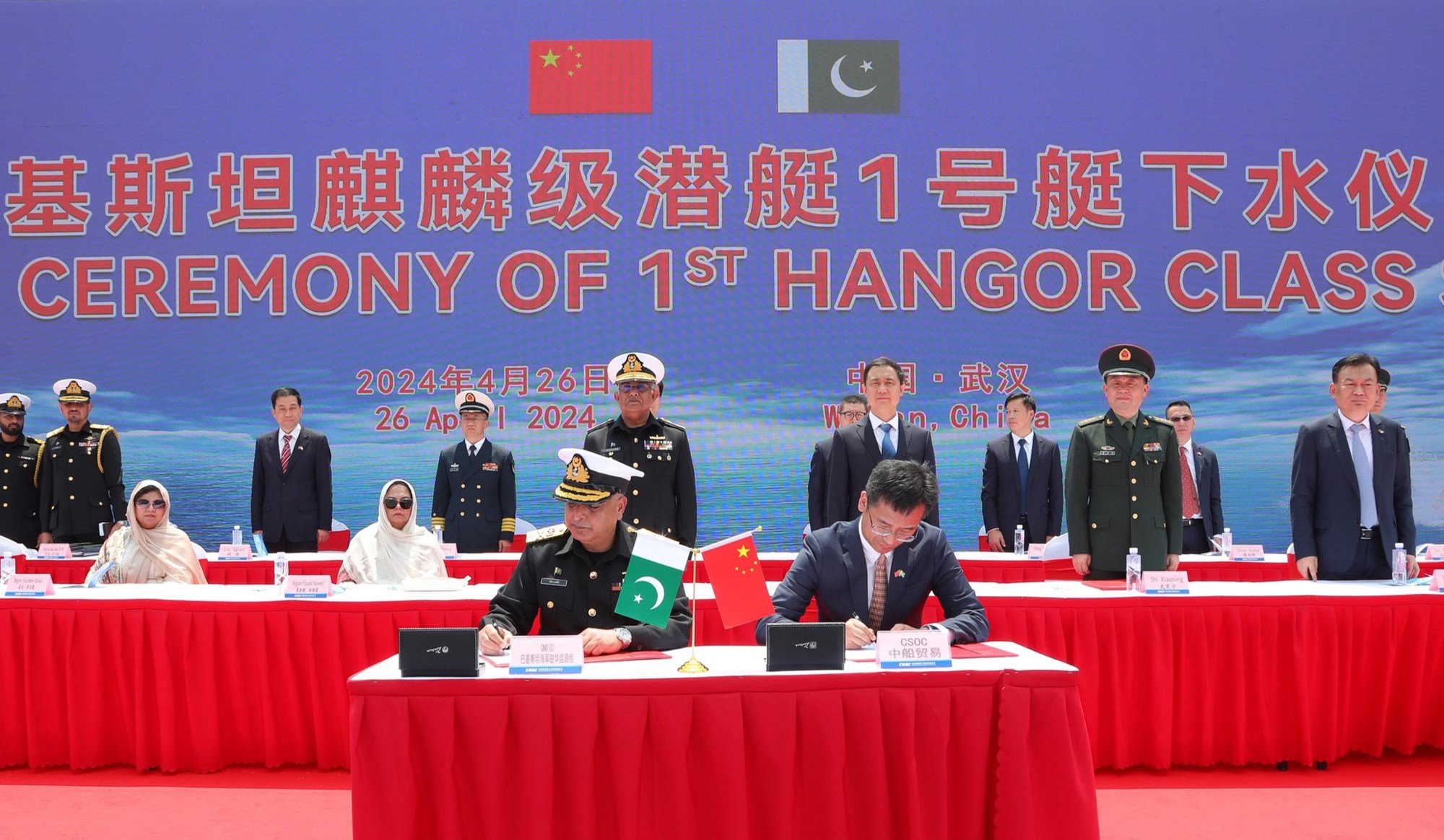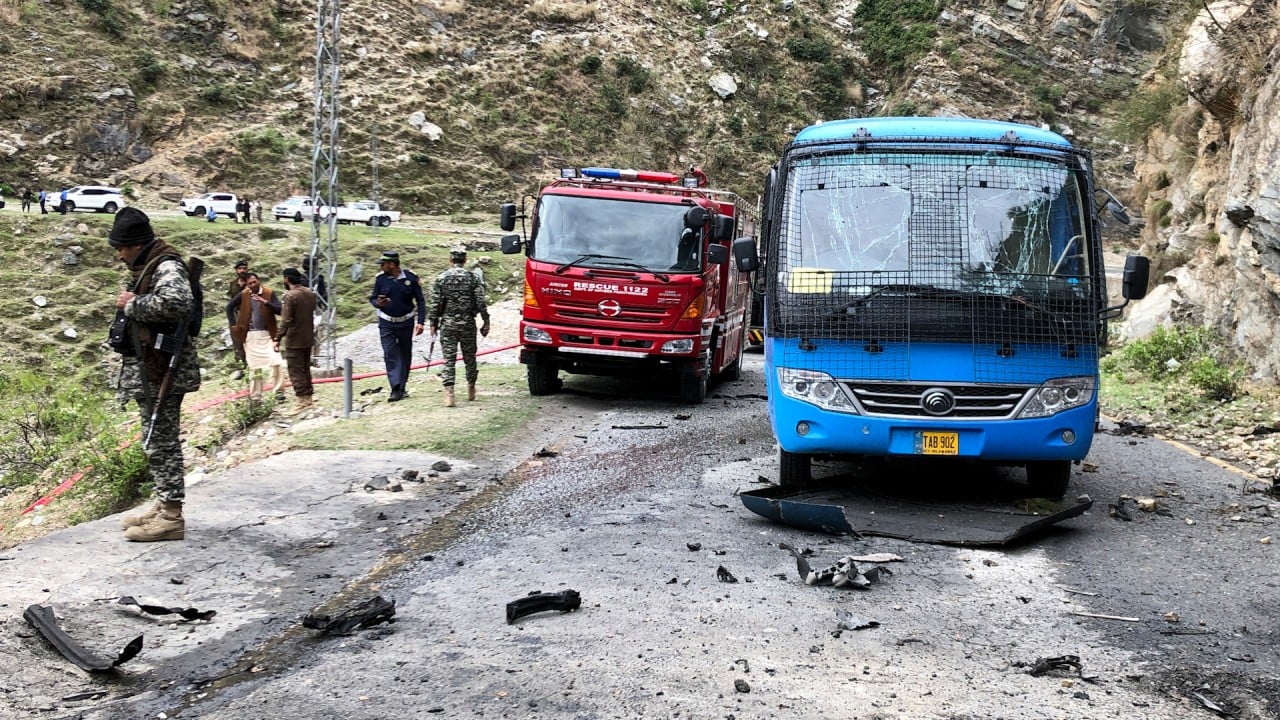
Pakistan’s clout grows as US official’s visit underscores its go-between role in Iranian affairs
- The visit by John Bass to Islamabad comes a week after Iran and Pakistan held talks on construction of their long-delayed gas pipeline
- The US also wants Pakistan to engage Afghanistan’s Taliban government on issues ranging from trade to refugees
“This visit of the US undersecretary is very significant in multiple contexts,” Nausheen Wasi, an international relations academic at the state-run Karachi University, said of Bass’ two-day trip from Tuesday.
Pakistan’s foreign office in a statement on Tuesday said “a productive discussion on all aspects of bilateral relation was held” during Bass’ visit, following a trip to Islamabad by Iranian President Ebrahim Raisi a week earlier.
All they want is to go back to Pakistan. But Indian-run Kashmir won’t let them
With tensions in the region running high, any further escalation by Israel would leave Pakistan, as a neighbour of Iran, the only “trusted ally to the US” in the vicinity, Wasi said.
“Pakistan’s strategic significance [is] tremendously [enhanced] … There are many such developments in the region that the US may ponder on, and it understands Pakistan’s role.”
The gas pipeline dilemma
During Raisi’s visit, Pakistan and Iran discussed completing a cross-border gas pipeline first mooted by both countries in the early 1990s and formally signed in 2013. While Iran has completed its segment, the construction of an 80km stretch to be built by Pakistan has been suspended amid fears of US sanctions.
Energy-deficit Pakistan hopes to tap cheaper sources to avoid paying heavy oil import bills due to its dwindling foreign exchange reserves. Islamabad and Tehran also agreed to increase bilateral trade to US$10 billion in the coming years from US$1.5 billion last year.
“Pakistan is not in a position to further delay the pipeline project as it would also have consequences,” said Nabila Jaffer, research analyst at the Institute of Regional Studies. She highlighted the severe implications of a penalty of US$18 billion demanded by Iran if Pakistan could not complete its part of the project.
Pakistan police link attacks on Chinese to TTP’s ‘broken switch’ terror cell
Conversely, the prospect of US sanctions targeting Iranian imports including gas could be a nightmare scenario for Pakistan, which relies heavily on Western financial help, according to observers.
“Iran is pressuring Pakistan, and the fear of US sanctions also looms large,” said Jaffer Ahmed, head of the Pakistan Study Centre at Karachi University, who warned that managing a “balancing act” would be difficult for Islamabad.
The Bass visit could also signal that the US wants to find an alternative energy source for Pakistan instead of Iran, observers say.
Wasi said: “Following the visit of the Iranian president, discussion [with the US] now would also include economic cooperation ... this clearly shows the US does not want Pakistan to engage with Iran on trade and energy matters”.
The Pakistani foreign office said in a statement: “The two sides [the US and Pakistan] reaffirmed the commitment to enhance cooperation in the areas of trade, investment and regional security.”
Refugee concerns
One issue that was likely discussed during Bass’ visit to Islamabad was the longstanding plight of Afghan refugees.
Last November, Pakistan launched the first-round repatriation of the refugees, returning about half a million of the around 1.7 million refugees living in the country.
The move came amid international appeals to halt the expulsions, citing concerns that the volatile situation in Afghanistan poses significant dangers for those who fled following the Taliban’s takeover of Kabul in 2021.
“The repatriation issue of Afghan refugees in Pakistan may remain one of the issues to be discussed [between Washington and Islamabad],” Wasi said.
Pakistan’s decision to repatriate Afghan refugees followed a series of terrorist attacks on government and foreign facilities, with Chinese interests a prime target. These attacks were attributed to the Pakistani Taliban and other terrorist groups believed to be sheltering in Afghanistan, who could easily blend in with Afghan refugees.
Another round of repatriation is on the cards.

“Pakistan [would have shared with the US] its concerns of anti-Pakistan terrorist sanctuaries in Afghanistan,” Nabila Jaffer said.
“We can see very active diplomatic efforts from the US to address the situation in Afghanistan … so this is a moment of opportunity for Pakistan [to tap on],” Wasi said.
The current Taliban regime in Afghanistan maintains a hostile stance towards Pakistan. As such, the US and other countries can play a key fence-mending role by encouraging Pakistan to engage Afghanistan through trade, education and other areas, according to analysts.
“There are many regional developments that reinforce the US’s view of the indispensability of engaging with Pakistan,” Wasi said.


